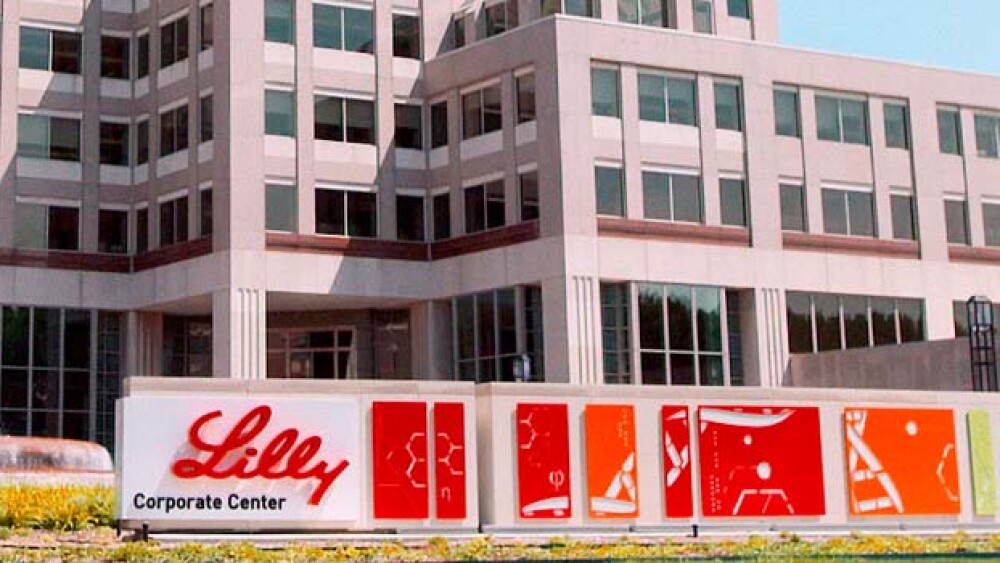Eli Lilly has signed a collaboration deal with CureVac that could total up to $1.8B.
Eli Lilly and Company has signed a collaboration deal with Tubingen, Germany-based CureVac AG that could total up to $1.8 billion.
The research-and-development collaboration will focus on developing and commercializing up to five possible cancer vaccines using CureVac’s proprietary RNActive technology, which uses messenger RNA (mRNA) to target antigens on tumors. Under the deal, Lilly will pay CureVac $50 million upfront and an equity investment of 45 million euros. CureVac could also receive more than $1.7 billion in milestones if all five vaccines are successfully developed, in addition to tiered royalties on any sales.
Lilly will select targets, and be responsible for clinical development and commercialization. CureVac will handle mRNA design, formulation and manufacturing of clinical supply, and will retain the rights to co-promote any vaccine products in Germany.
“We are excited to be collaborating with CureVac to discover what could potentially be the next frontier of cancer medicines,” said Greg Plowman, Lilly’s vice president of oncology research, in a statement. “This collaboration reinforces Lilly’s commitment to delivering life-changing medicines to treat and cure people living with cancer around the world.”
CureVac’s technology uses mRNA as a “data carrier” that provides instructions to the body’s cells to manufacture its own proteins to fight diseases. So far, it’s been used for the development of cancer treatments, prophylactic vaccines, and molecular therapies. To date, the company has received about $370 million in equity investments from sources that include SAP founder Dietmar Hopp’s dievini and a $52 million investment from the Bill & Melinda Gates Foundation. The company has also collaborated with other companies and organizations, including Boehringer Ingelheim, Sanofi Pasteur, the Gates Foundation and IAVI.
“This new collaboration with Lilly is a testimony to the progress and sophistication of CureVac’s RNActive technology and the potential of mRNA-based therapeutics,” said Ingmar Hoerr, co-founder and chief executive officer of CureVac, in a statement. “We now have the opportunity to combine forces to further expand the exciting space of immuno-oncology with the next generation of cancer therapies. We are thrilled to work with the Lilly team and hope to advance this new treatment paradigm into the clinic and ultimately to the market.”
Cancer vaccines show a lot of promise, but so far they haven’t lived up to their potential. CureVac’s lead mRNA program, CV9104 for prostate cancer, failed a Phase IIb clinical trial in January. Other companies’ cancer vaccines haven’t proved to be more effective than other therapeutics, although they have a good safety profile, generally.
John Carroll, with Endpoints News, writes, “CureVac—backed by German billionaire Dietmar Hopp along with additional funding from the Gates Foundation—is one of the leaders in the mRNA field, with Moderna and others engaged in a scientifically demanding approach to instructing targeted cells to create a treatment. It’s still early days, though we are beginning to see more early human data that underscores the potential of the field. For Lilly, this is another example of a more expansive approach to partnering and external innovation, with new CEO Dave Ricks more likely to reach out to collaborators than his predecessor John Lechleiter.”





